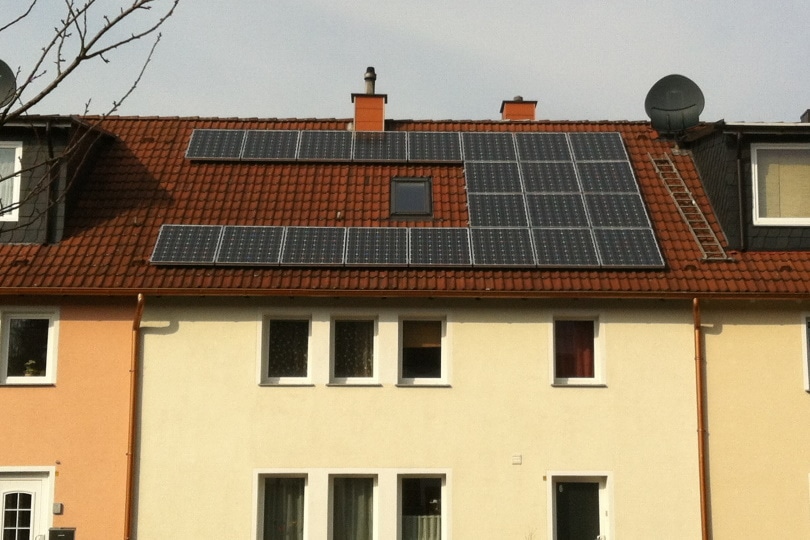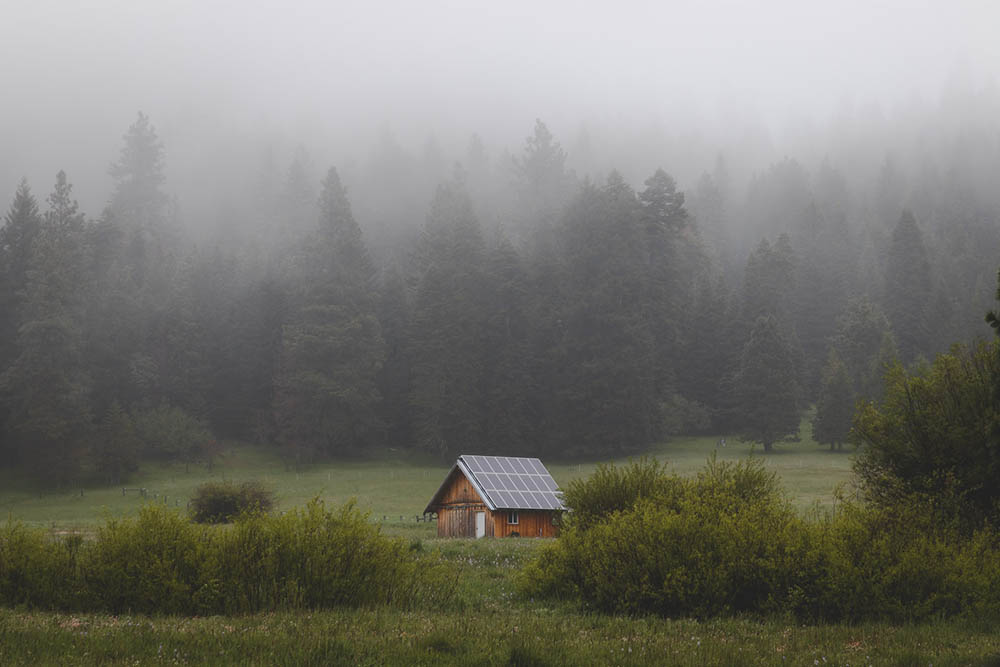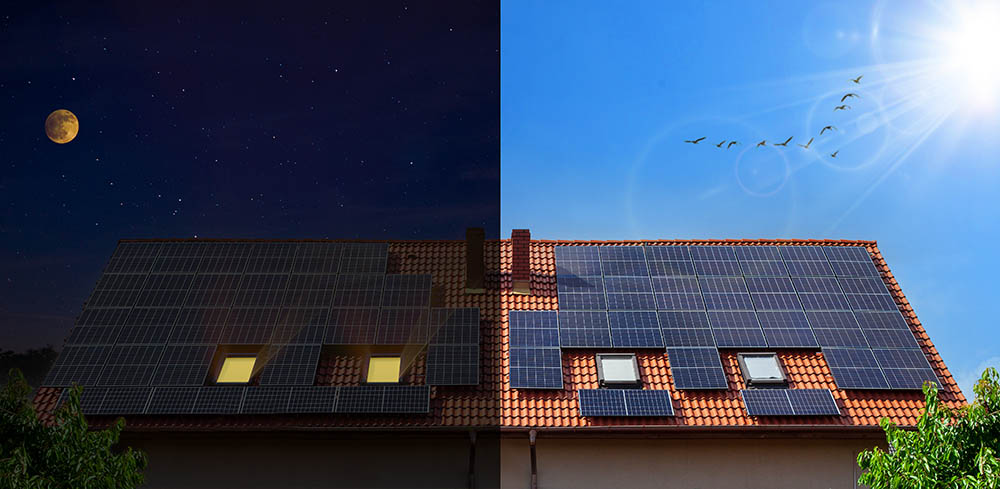Do Solar Panels Work on Cloudy Days?
-
Pete Ortiz
- Last updated:

Solar panel technology is continuing to improve in efficiency, giving consumers more dependable power options every year. Panels not only harness power in direct sunlight but can generate electricity in cloudy and low-light conditions as well. Batteries also allow you to store energy for use at night.
Investing in solar panels is an excellent way to stay eco-friendly and save on long-term electrical costs. Although panels can be effective, you may be concerned about reliability. On overcast days, will these panels still be capable of generating enough energy to power your home?
In this article, we’ll explain how solar panels take in energy and whether they will still perform in poor light.
Do Solar Panels Work on Cloudy Days?
Photovoltaic solar panels can capture direct and indirect light to generate energy. That means they still work on cloudy days, but the efficiency can plummet. Output is typically about 10-25% of the energy you would get on a sunny day.
Solar panels work best when there is a little cloud cover. Panels can lose efficiency in high heat, which often comes from direct sunlight and passing clouds can sometimes help magnify the light contacting the cells.

Will Solar Panels Work at Night?
Solar cells can pick up direct, indirect, or reflected sunlight to create energy. They’ll work at least to a minor degree on overcast days, but they won’t produce any power at night. Fortunately, when you set up a solar panel installation, you can choose one of two ways to make sure you have electricity at all times of the day.
Getting Power When the Sun Is Down
You can continue getting power at night with a solar installation through a solar battery or a net metering program.
You can buy solar batteries with some solar panel installations to collect energy throughout the day. If it’s sunny and you’re getting more power than you’re using, the excess goes to the battery. It can get expensive, and you may need multiple batteries for extended periods without sunlight, but they have little to no operating costs after you set them up.
A net metering program lets you pull electricity from your city’s utility grid when your solar cells aren’t producing power. Your home is still tied into the electrical grid, using solar power throughout the day and transferring any excess energy back to the grid for your municipality to use. Your utility company “pays” you for the power you provide with credits. So if you only use energy from them at night, your credits may pay for a big chunk or even all of your electrical bill.

How Does Weather Affect Solar Panel Output?
The weather itself has little to do with the output of solar cells if they are receiving ample sunlight. Light rain can even be beneficial by washing away dirt, dust, and grime that block the sun from reaching the cells. However, extreme conditions like high winds, hail, or lightning usually come with cloud cover, and they can often damage, destroy, or displace panels.
While there’s no guarantee that any particular type of weather will affect performance, temperature can impact a panel’s output. Solar cells work best in low temperatures. They draw energy from light, not heat, so as long as they receive enough sunlight, they will operate at peak performance.
High temperatures, generally above 77 degrees F, can decrease performance by lowering the panel’s voltage. Even if the current increases, which it often does in high heat because it’s also usually sunny, the rate of the power going out of the panel goes down. Since solar panels can get much hotter than the outside air, it’s often helpful to have a wind or evaporative cooling setup to offset the high temperature.
Final Thoughts
Solar panels are efficient at pulling energy from indirect sources, so they can continue working even on cloudy days. While you can’t expect them to work at all times of day, they can still provide power in poor weather conditions if you build a sturdy, protective encasement. To make sure they perform at optimal efficiency, provide the best value, and last as long as possible, it’s crucial to monitor wear and the effects of heat on the cells.
Featured Image Credit: Piqsels
Contents



